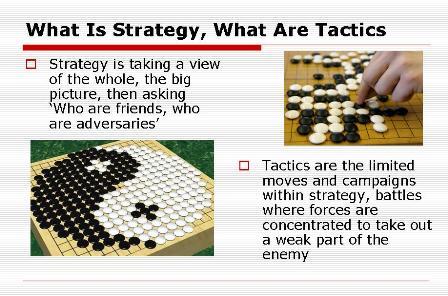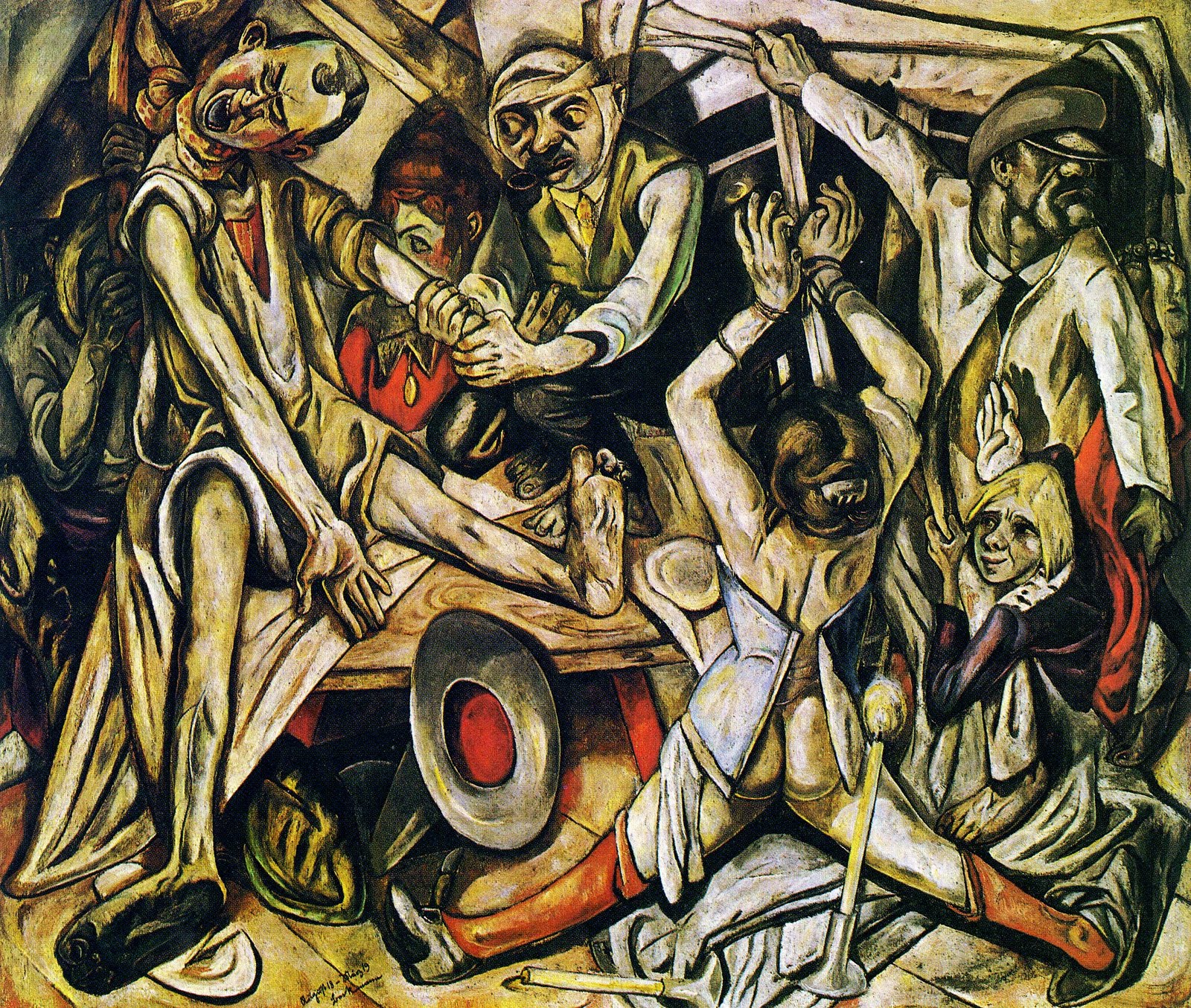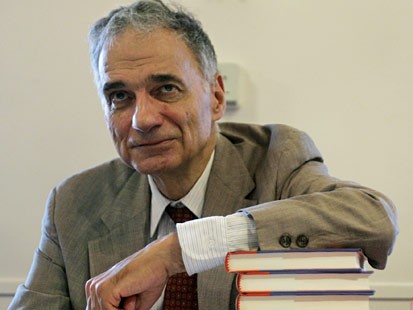
Jackson Rising:
New Economies Conference
|
 | |
Journal of the Black Left Unity Network
|
|

New CCDS Book Reporting on Vietnam
|
 The new annual edition of our journal of discussion and analysis is now out. More than 130 pages, it includes 20 articles on organizing, racism and the right. Cost is $10 plus shipping. Or get one by becoming a sustainer. Click the title to buy it directly. The new annual edition of our journal of discussion and analysis is now out. More than 130 pages, it includes 20 articles on organizing, racism and the right. Cost is $10 plus shipping. Or get one by becoming a sustainer. Click the title to buy it directly.
|
|
Radical Jesus:
A Graphic History of Faith  By Paul BuhleHerald Press By Paul BuhleHerald Press
|

Check out what CCDS has been doing...
|
 Keep On Keepin' On Keep On Keepin' OnStrategy and Tactics Slide Slow, Class and Privilege, the Green New Deal ...and other Short Posts on Tumblr by Carl Davidson
|

Edited by Carl Davidson Revolutionary Youth the the New Working Class: The Praxis Papers, the Port Authority Statement, the RYM Documents and other Lost Writings of SDS
Changemaker, 273pp, $22.50
For the full contents, click the link and view 'Preview' under the cover graphic.
|
|
By Randy Shannon, CCDS

"Everyone has the right to work, to free of employment, to just and favorable conditions of work and to protection against unemployment."
- United Nations Universal Declaration of Human Rights, December 10, 1948
I. Introduction
The "Great Recession" that began in 2007 has caused the greatest percent of job losses since the Great Depression of 1929. This crisis is the end of an era of unrestrained 'neo-liberal' capitalism that became public policy during the Reagan administration. The crisis marks a new level of instability with the growth of a global financial elite that targeted US workers and our trade unions after World War II.
|
|
Order Our
Full Employment Booklets
 |
...In a new and updated 2nd Edition
Capitalism may well collapse under its own excesses, but what would one propose to replace it? Margaret Thatcher's mantra was TINA...There Is No Alternative. David Schweickart's vision of "Economic Democracy" proposes a serious alternative. Even more fundamentally, it opens the door to thinking about alternatives. His may or may not turn out to be the definitive "successor system," but he is a leader in breaking out of the box. |
We Are Not What We Seem:
Black Nationalism and Class Struggle in the American Century
By Rod Bush, NYU Press, 1999
|
 A Memoir of the 1960s A Memoir of the 1960s
by Paul KrehbielAutumn Leaf Press, $25.64 | | Shades of Justice Video: Bringing Down a President, Ending a War |
|

Essays on Mondragon, Marx, Gramsci
and the Green and Solidarity Economies |
Solidarity Economy:What It's All About

Edited by Jenna Allard, Carl Davidson and Julie Matthaei
Buy it here...
|

- Foreword by Susan Brownmiller
- Preface by Ken Wachsberger
$37.50 + $6 shipping
|
|
Discussion Documents for a Militant Movement

By Don Hamerquist
|
|
|
|
An Invitation to CCDSers and Friends...
 Low-Hanging Low-Hanging
Fruit and Tough
Nuts to Crack:
The Year Ahead
We're the Committees of Correspondence for Democracy and Socialism...Do you have friends who should see this? Pass it on...Do you have a blog of your own? Others you love to read every day? Well, this is a place where you can share access to them with the rest of your comrades. Just pick your greatest hits for the week and send them to us at carld717@gmail.com!
Most of all, it's urgent that you oppose war on Iran, defend voter rights, plan for 2014 races now, oppose austerity, support the 'Moral Mondays' in North Carolina, the Congressional Progressive Caucus' 'Back to Work Budget'! We're doing more than ever, and have big plans. So pay your dues, make a donation and become a sustainer. Do it Now! Check the link at the bottom... |
Job Danger: Temporary Work, Lasting Harm

By Jeff Larson, Michael Grabell and Olga Pierce ProPublica
Dec 21, 2013 - Jacksonville, Florida - This was it, he told his brother Jojo. He would finally be able to pay his mother back for the fender bender, buy some new shoes and, if things went well, maybe even start a life with his fiancee who was living in Atlanta.
After getting his high school diploma, completing federal job training and sending out dozens of applications, Day Davis, 21, got a job. It was through a temp agency and didn't pay very much, but he would be working at the Bacardi bottling plant, making the best-selling rum in the world.
Davis called his mother to tell her the good news and ask if she could pick him up so he could buy the required steel-toe boots, white shirt and khaki pants and get to the factory for a 15-minute orientation before his 3 p.m. shift.
Word spread quickly through the family. "Me and my brother was like, 'Don't mess up now, you got to do good, don't mess up,' " said his younger sister, Nia.
It was a humid 90 degrees as Davis walked into Bacardi's Warehouse No. 7 to the rattle of glass bottles, the whir of fans and the clank of industrial machines. It was his first day on the first job of his life. He went to the bathroom and took a photo of himself in the mirror, showing off his work clothes and orange safety vest. He texted it to his fiancee, Alicia Lloyd, and promised he would call her during his break.
When Davis walked into the factory, he joined one of the fastest-growing and more dangerous segments of the U.S. labor market: blue-collar temp work.
Since the 2008 recession, companies have increasingly turned to temporary employees to work in factories and warehouses and on construction sites. The temp industry now employs a record 2.8 million workers.
The trend carries a human cost.
A ProPublica analysis of millions of workers' compensation claims shows that in five states, representing more than a fifth of the U.S. population, temps face a significantly greater risk of getting injured on the job than permanent employees.
In California and Florida, two of the largest states, temps had about 50 percent greater risk of being injured on the job than non-temps. That risk was 36 percent higher in Massachusetts, 66 percent in Oregon and 72 percent in Minnesota.
These statistics understate the dangers faced by blue-collar temps like Davis. Nationwide, temps are far more likely to find jobs in dangerous occupations like manufacturing and warehousing. And their likelihood of injury grows dramatically.
In Florida, for example, temps in blue-collar workplaces were about six times as likely to be injured than permanent employees doing similar jobs.
The findings were particularly stark for severe injuries. In Florida, the data shows, temps were about twice as likely as regular employees to suffer crushing injuries, dislocations, lacerations, fractures and punctures. They were about three times as likely to suffer an amputation on the job in Florida and the three other states for which such records are available.
ProPublica interviewed more than 100 temp workers across the nation and reviewed more than 50 Occupational Safety and Health Administration investigations involving temp worker accidents.
The interviews and OSHA files revealed situations that occur over and over again: untrained laborers asphyxiated while cleaning the inside of chemical tanks, caught in heavy machinery such as food grinders and tire shredders, and afflicted by heat stroke after a long day on a garbage truck or roof.
The lightly regulated blue-collar temp world is one where workers are often sent to do dangerous jobs with little or no training. Where the company overseeing the work isn't required to pay the medical bills if temps get hurt. And where, when temp workers do get injured on the job, the temp firm and the company fight with each other over who is responsible, sometimes even delaying emergency medical care while they sort it out.
The growing reliance on temps subverts one of the strongest incentives for companies to protect workers. The workers' comp system was designed to encourage safety through economic pressure; companies with higher injury rates pay higher insurance premiums. Hiring temp workers shields companies from those costs. If a temp worker gets hurt, the temp agency pays the workers' comp, even though it has little or no control over job sites.
OSHA director David Michaels said he has been alarmed by the number of temp workers being killed on their first day on the job. Earlier this year, he launched an initiative to raise awareness about the dangers temp workers face and employers' responsibilities. But despite growing concern about temp workers' safety, regulators and lawmakers have struggled to make major changes, in part because they lack basic data, such as whether temps get injured more than regular workers. Unlike the way it monitors every other industry, the federal government does not keep injury statistics on temp agency workers.
A groundbreaking 2010 study of Washington state's workers' comp claims found that temp workers in construction and manufacturing had twice the claims rate of regular workers doing the same type of work....(Click title for more)
|
|

Why the Progressive Majority Needs a Common Front vs. Finance Capital, War and the Far Right
By Chris Hedges
Beaver County Blue via Common Dreams
Dec 20, 2013 - Money, as Karl Marx lamented, plays the largest part in determining the course of history. Once speculators are able to concentrate wealth into their hands they have, throughout history, emasculated government, turned the press into lap dogs and courtiers, corrupted the courts and hollowed out public institutions, including universities, to justify their looting and greed.
 Today's speculators have created grotesque financial mechanisms, from usurious interest rates on loans to legalized accounting fraud, to plunge the masses into crippling forms of debt peonage. They steal staggering sums of public funds, such as the $85 billion of mortgage-backed securities and bonds, many of them toxic, that they unload each month on the Federal Reserve in return for cash. And when the public attempts to finance public-works projects they extract billions of dollars through wildly inflated interest rates. Today's speculators have created grotesque financial mechanisms, from usurious interest rates on loans to legalized accounting fraud, to plunge the masses into crippling forms of debt peonage. They steal staggering sums of public funds, such as the $85 billion of mortgage-backed securities and bonds, many of them toxic, that they unload each month on the Federal Reserve in return for cash. And when the public attempts to finance public-works projects they extract billions of dollars through wildly inflated interest rates.
Speculators at megabanks or investment firms such as Goldman Sachs are not, in a strict sense, capitalists. They do not make money from the means of production. Rather, they ignore or rewrite the law-ostensibly put in place to protect the vulnerable from the powerful-to steal from everyone, including their shareholders. They are parasites. They feed off the carcass of industrial capitalism. They produce nothing. They make nothing. They just manipulate money. Speculation in the 17th century was a crime. Speculators were hanged.
We can wrest back control of our economy, and finally our political system, from corporate speculators only by building local movements that decentralize economic power through the creation of hundreds of publicly owned state, county and city banks.
The establishment of city, regional and state banks, such as the state public bank in North Dakota, permits localities to invest money in community projects rather than hand it to speculators. It keeps property and sales taxes, along with payrolls for public employees and pension funds, from lining the pockets of speculators such as Jamie Dimon and Lloyd Blankfein. Money, instead of engorging the bank accounts of the few, is leveraged to fund schools, restore infrastructure, sustain systems of mass transit and develop energy self-reliance. ...(Click title for more)
|

By Michael Moore
New York Times Op-Ed
Dec 31, 2013 - Today marks the beginning of health care coverage under the Affordable Care Act's new insurance exchanges, for which two million Americans have signed up. Now that the individual mandate is officially here, let me begin with an admission: Obamacare is awful.
That is the dirty little secret many liberals have avoided saying out loud for fear of aiding the president's enemies, at a time when the ideal of universal health care needed all the support it could get. Unfortunately, this meant that instead of blaming companies like Novartis, which charges leukemia patients $90,000 annually for the drug Gleevec, or health insurance chief executives like Stephen Hemsley of UnitedHealth Group, who made nearly $102 million in 2009 [2], for the sky-high price of American health care, the president's Democratic supporters bought into the myth that it was all those people going to get free colonoscopies and chemotherapy for the fun of it.
I believe Obamacare's rocky start - clueless planning, a lousy website, insurance companies raising rates, and the president's telling people they could keep their coverage when, in fact, not all could - is a result of one fatal flaw: The Affordable Care Act is a pro-insurance-industry plan implemented by a president who knew in his heart that a single-payer, Medicare-for-all model was the true way to go. When right-wing critics "expose" the fact that President Obama endorsed a single-payer system before 2004, they're actually telling the truth.
What we now call Obamacare was conceived at the Heritage Foundation, a conservative think tank, and birthed in Massachusetts by Mitt Romney, then the governor. The president took Romneycare, a program designed to keep the private insurance industry intact, and just improved some of its provisions. In effect, the president was simply trying to put lipstick on the dog in the carrier on top of Mitt Romney's car. And we knew it.
By 2017, we will be funneling over $100 billion annually to private insurance companies. You can be sure they'll use some of that to try to privatize Medicare.
For many people, the "affordable" part of the Affordable Care Act risks being a cruel joke. The cheapest plan available to a 60-year-old couple making $65,000 a year in Hartford, Conn., will cost $11,800 in annual premiums. And their deductible will be $12,600. If both become seriously ill, they might have to pay almost $25,000 in a single year. (Pre-Obamacare, they could have bought insurance that was cheaper but much worse, potentially with unlimited out-of-pocket costs.)
And yet - I would be remiss if I didn't say this - Obamacare is a godsend. My friend Donna Smith, who was forced to move into her daughter's spare room at age 52 because health problems bankrupted her and her husband, Larry, now has cancer again. As she undergoes treatment, at least she won't be in terror of losing coverage and becoming uninsurable. Under Obamacare, her premium has been cut in half, to $456 per month.
Let's not take a victory lap yet, but build on what there is to get what we deserve: universal quality health care.
Those who live in red states need the benefit of Medicaid expansion. It may have seemed like smart politics in the short term for Republican governors to grab the opportunity offered by the Supreme Court rulings that made Medicaid expansion optional for states, but it was long-term stupid: If those 20 states hold out, they will eventually lose an estimated total of $20 billion in federal funds per year [3] - money that would be going to hospitals and treatment.
In blue states, let's lobby for a public option on the insurance exchange - a health plan run by the state government, rather than a private insurer. In Massachusetts, State Senator James B. Eldridge is trying to pass a law that would set one up. Some counties in California are also trying it. Montana came up with another creative solution. Gov. Brian Schweitzer, a Democrat who just completed two terms, set up several health clinics [4] to treat state workers, with no co-pays and no deductibles. The doctors there are salaried employees of the state of Montana; their only goal is their patients' health. (If this sounds too much like big government to you, you might like to know that Google, Cisco and Pepsi do exactly the same [5].)
All eyes are on Vermont's plan for a single-payer system, starting in 2017. If it flies, it will change everything, with many states sure to follow suit by setting up their own versions. That's why corporate money will soon flood into Vermont to crush it. The legislators who'll go to the mat for this will need all the support they can get: If you live east of the Mississippi, look up the bus schedule to Montpelier.
So let's get started. Obamacare can't be fixed by its namesake. It's up to us to make it happen.
[Michael Moore [6] is a documentary filmmaker whose 2007 film "Sicko" examined the American health care industry.]
Links: ...(Click title for more)
|
 | Newly Elected NYC Mayor Bill de Blasio:
|
By Juan Gonzalez and Amy Goodman
Democracy Now! | Video Report
Jan 2, 2014 - Bill de Blasio began his term as New York City mayor on Wednesday with a bold pledge to tackle income inequality in the nation's largest city. De Blasio was sworn in following last year's historic victories in the Democratic primary and general election on a progressive platform. In his inaugural address, de Blasio focused on his campaign pledge to tackle what he called "a tale of two cities," a growing gap between rich and poor. "New Yorkers [will] see our city not as the exclusive domain of the One Percent, but a place where everyday people can afford to live, work, and raise a family," de Blasio said. "We won't wait. We'll do it now."
TRANSCRIPT:
JUAN GONZÁLEZ: Here in New York, Bill de Blasio has been sworn in as the city's new mayor, replacing billionaire Mike Bloomberg. Former U.S. President Bill Clinton administered the oath of office on a Bible once used by Franklin Delano Roosevelt. De Blasio is the first Democrat to lead New York in two decades. In his inaugural address, he vowed to fight income inequality.
MAYOR BILL DE BLASIO: I know that there are those who think that what I said during the campaign was just rhetoric, just political talk in the interest of getting elected. And there are some who think that now, as we turn to governing, well, that things will just continue pretty much the way they always have. So let me be clear: When I said I would take dead aim at the tale of two cities, I meant it. And we will do it. I will honor the faith and the trust you have placed in me, and we will give life to the hope of so many in our city. We will succeed as one city.
And we know this won't be easy. It will require all that we can muster. And it won't be accomplished only by me. It will be accomplished by all of us, those of us here today and millions of everyday New Yorkers in every corner of our city. You must continue to make your voices heard. You must be at the center of this debate. And our work begins now.
We will expand the paid sick leave law, because no one should be forced to lose a day's pay or even a week's pay simply because illness strikes. And by this time next year, fully 300,000 additional New Yorkers will be protected by that law. We won't wait; we'll do it now.
We will require big developers to build more affordable housing. We will fight to stem the tide of hospital closures. And we'll expand community health centers into neighborhoods in need, so that New Yorkers see our city not as the exclusive domain of the 1 percent, but a place where everyday people can afford to live, work and raise a family. We won't wait; we'll do it now.
We will reform a broken stop-and-frisk policy, both to protect the dignity and rights of young men of color and to give our brave police officers the partnership they need to continue their success in driving down crime. We won't wait; we'll do it now.
And we will ask the very wealthy to pay a little more in taxes, so that we can offer full-day universal pre-K for every child in this city and after-school programs for every middle-school child. When we say "a little more," we can rightly emphasize the "little." Those earning between $500,000 and a million dollars a year, for instance, would see their taxes increase by an average of $973 a year. That's less than three bucks a day-about the cost of a small soy latte at your local Starbucks. Think about it. A five-year tax on the wealthiest among us with every dollar dedicated to pre-K and after-school. Asking those at the top to help our kids get on the right path and stay there, that's our mission. And on that, we will not wait; we'll do it now.
AMY GOODMAN: That was New York City Mayor Bill de Blasio delivering his inaugural address on Wednesday outside City Hall. Well, Juan, you were there covering the inauguration in the bitter cold.
JUAN GONZÁLEZ: In the bitter, bitter cold, yes, it was. A numbing cold, it was for hours out there. But it really was an unusual inauguration, and I've covered many of these municipal inaugurations over the years. The most interesting thing, obviously, was the more people-oriented nature of the inauguration. The mayor-the new mayor had given out a thousand tickets to ordinary New Yorkers who applied for them. There was disco music to entertain the-a disc jockey to entertain the audience while they waited in the cold.
And I think it's kind of-it's hard to underestimate the extraordinary change that is occurring in city government compared to the Bloomberg era. And there was Michael Bloomberg sitting-probably the most morose look on his face that he's had in his 12 years in office, as he heard one after another speaker essentially criticize his record. And I think that it's hard to underestimate the enormous change that's occurring. It's almost a 180-degree turn in New York City government, not just with Bill de Blasio, but with the new public advocate, Letitia James; the comptroller, Scott Stringer; and next week the City Council is poised to elect a councilwoman from East Harlem and the South Bronx, Melissa Mark-Viverito, to be-and who's also the co-chair of the Progressive Caucus, to become the speaker, which is the second most powerful post. So you've got basically a coalition of the most progressive public officials almost in memory about to-assumed office in this week. And I think it's going to be a dramatic change from the sort of corporate-oriented, top-down management style of the Bloomberg era to a more bottom-up effort to address the needs of the 99 percent that obviously Occupy Wall Street put on the national map.
AMY GOODMAN: Now, interestingly, one of the biggest cheers came when he talked about taxing wealthier New Yorkers to help pay for pre-K education.
JUAN GONZÁLEZ: Well, not only pre-K, but I think people have not noticed that he's also increasingly emphasizing after-school programs and the need for middle-school children to-for parents, working parents, to feel that their children are in safe hands if they're in after-school programs while-before they arrive-before their parents arrive home from work. So I think he's emphasizing preschool and after-school programs, which have seen huge slashes over the last couple of decades in terms of government investment in that time between 3:00 and 5:00 or 6:00, when children, many of them, are unsupervised, unfortunately, especially the older children....(Click title for more)
|
 | | Bruce Springsteen - High Hopes |
|
The Strategy of Attrition

[Some food for thought on winning the battles of democracy and the progressive majority - CarlD]
By Gavin Mendel-Gleason & James O'Brien
Online University of the Left via TheNorthStar.info
January 1, 2014: Part I of II, for Part II see: 'The Strategy of Attrition:Conquest or Destruction of the State?' further down
Introduction
Right from its beginnings in early 19th century, socialism has been bedevilled by debates over strategy in a way that right-wing ideologies have not. Would salvation come, as Fourier dreamed, from wealthy benefactors funding new communist colonies or maybe, as Proudhon envisaged, through workers founding their own mutualist enterprises and bypassing politics altogether? Or perhaps a more aggressive stance was necessary, as advocated by the proto-syndicalist wing of the British Chartist movement in the 1830s, who even then were cognisant of workers' leverage at the point of production and supported the use of a Grand National Holiday - aka a general strike. Or was the mainstream Chartist emphasis on political action, i.e. taking control of state-power after having won universal suffrage be the centre of socialist activity the best way forward.
These strands and more were already manifest in England, then the most advanced capitalist country, in the 1830s - a long time ago. And they remain with us to this day because the problem to which they attempted to solve, namely minority rule, remains very much with us. The various tendencies correspond to available oppositional niches in a society dominated by capitalist production and therefore elite influence.
It seems obvious that an adroit mixture of the strategies, one which combined the strength of labour, the potential wealth of co-ops and the leverage of mass parties, is the goldilocks of political strategies and indeed that is the position we advocate. However, once we get into the details the obvious quickly becomes very blurry indeed. It's hardly surprising that socialists have lacked the clarity of the right-wing since they, unlike us, are in driving seat and don't need to change a whole lot while we are searching for a way to achieve our goals.
And it turns out that a combined arms strategy of unions, co-ops, and political party is not, in fact, the dominant orientation on the radical left, and has not been since 1917, at least in the English speaking world. There are, for example, proponents of an exclusively non-state orientation and there are supporters of political means, but who both deny that co-operatives can play a meaningful role before the working class has seized power and that tightly knit revolutionary groups are the key to success.
In this essay we are going to focus on the political arena and make case for a robust mass party strategy that aims to win political power via democratic elections, and only touch upon the role of trade unions and co-ops.
The Democratic Road
The case for choosing the democratic road is best teased out in comparison with alternative approaches, which for our purposes is going to mostly be the strategy of insurrection pursued by Anarchists and Trotskyists that is common amongst the revolutionary groups in the Anglo-phone world.
If the basic strategic choices first emerged in the 1830s, they became permanent features of the political landscape in the era of the First International (1864 - 1873) when the Anarchists and the Marxists parted ways replete with their own theoretical justifications. The Russian Revolutions of 1905 and 1917, which saw the emergence of workers' councils, moved the debate from being one that separated Anarchists and Marxists and landed it into the heart of Marxism itself.
Let us lay our cards on the table at the outset: the political strategy advocated here involves attempting to win state power in the advanced capitalist countries through legal means, taking the democratic road if you will. In practice, this involves winning a majority through competition in elections which are broadly considered free and fair.
However, a simple description of this approach isn't sufficient. In order to evaluate its worth, we need to compare it to alternatives, of which there is no shortage, from anti-consumerism, to back to nature primitivism, NGO lobbying, Third Worldism, and Occupyesque protesting to name some of the lesser lights. For reasons of space, we're going to limit the alternative to the principal one offered by revolutionary socialists since 1917: the smashing of the existing state and its replacement by participatory workers councils, i.e. the primary strategy offered by both the Trotskyists and the Anarchists....(Click title for more)
|
|
By Miles Johnson
SolidarityEconomy.net via ŠAFP Madrid
A worker drives a forklift at the Mondragon group's Fagor electrical appliances' plant.
The Mondragon workers co-operative has never had much in common with the average Spanish company. From its low key 1970s style headquarters in the small Basque town bearing its name, to a rule barring its president from earning more than 8 times its lowest paid worker, it stands out as an alternative model of business organisation.
Last month, however, the crisis that has gnawed away at so many of its more conventional Spanish peers, pushing almost 30,000 companies into bankruptcy protection in five years, finally caught up with one of the world's largest collectively owned companies and one of Spain's top 10 companies by turnover.
In November, Mondragon - a conglomerate stretching from banking to supermarkets with revenues - decided to let its oldest member file for protection against its creditors.
The decision to cast aside the loss making Fagor, Europe's fifth biggest white goods manufacturer, which employs 5,600 workers, has caused a rift within the Basque co-operative and prompted a debate over the capacity of its famous business model to weather Spain's crisis.
Employing about 83,000 people, of whom half are collective members, Mondragon has for its entire history allowed its worker-owners to vote on strategic decisions and to reallocate staff across divisions when cutbacks were made.
Yet some in the company now blame Mondragon's complicated structure of worker representation for delaying the necessary restructuring at Fagor until it was too late. "It is like asking a sick man to cut off his own arm," says one senior Mondragon executive, speaking about Fagor, which represented 8 per cent of the group's sales last year. "Our objective has always been to protect employment but employment that is sustainable, not to lose money".
The Mondragon model
Mondragon, based in the Basque country in northern Spain, is a workers collective founded by a Catholic priest in 1956 that has grown to become one of the country's top 10 largest companies by revenues, with a turnover of €14bn last year, writes Miles Johnson.
Its businesses span across supermarkets, banking and industry, and it has its own university in the town of 20,000 bearing its name.
Mondragon is owned by its co-operative workers, with an ideological goal of promoting sustainable employment for its members.
Txema Gisasola, Mondragon's president, cannot earn more than eight times its co-operative members, with workers in its different companies voting periodically over the maximum ratio between highest- and lowest-paid employees.
Executives at the group argue that its conglomerate-like structure and lack of outside capital or shareholders allow it to work in the interests of its workers while at the same time being profitable. In downturns workers from one division can in theory be reallocated to less cyclically vulnerable parts of the group, meaning employment can be sustained.
For the past few years Fagor has suffered from all of the typical problems of a Europe-based electronics manufacturer, having lost money each year since 2008 as it faced ever greater competition from Asia. Moreover, Fagor entered the financial crisis heavily indebted following an ill timed acquisition just as consumer spending in its main markets began to collapse. ...(Click title for more)
|

By Ralph Nader
Counterpunch
1. Think Like a Commoner: A Short Introduction to the Life of the Commons by David Bollier (New Society Publishers)
David Bollier is a leading writer and advocate for all those real-life commons - what we own, from the public lands, public airwaves, online information and local civic assets. He calls the commons a "parallel economy and social order that...affirms that another world is possible. And more: we can build it ourselves, now."
2. All the President's Bankers: The Hidden Alliances that Drive American Power by Nomi Prins (Nation Books)
All the President's Bankers is about the hidden alliances between big bankers and the government leaders they have controlled for the past 100 years. A gripping history that reflects the words of the famed Louis B. Brandeis (later to become Supreme Court Justice Brandeis) who wrote: "We must break the Money Trust or the Money Trust will break us." Prins was a former Goldman Sachs director. She knows this world.
3. How Can You Represent Those People? Edited by Abbe Smith and Monroe H. Freedman (Palgrave Macmillan)
How many times have criminal defense attorneys been asked this question when they represent unpopular, unsavory, or horrific accused defendants? Fifteen criminal defense lawyers write short but educational replies in both personal and professional terms. You'll learn a lot about our legal system.
4. The Truth in Small Doses: Why We're Losing the War on Cancer and How to Win It by Clifton Leaf (Simon & Schuster)
The Truth in Small Doses is a detailed, sober myth-busting report. Leaf concludes the "war on cancer" is a failure due to a dysfunctional "cancer culture" - "a groupthink that pushes tens of thousands of physicians and scientists toward the goal of finding the tiniest improvements in treatment rather than genuine breakthroughs; that fosters isolated and redundant problem-solving instead of cooperation; and rewards academic achievement and publication above all else." He shows why "the public's immense investment in research has been badly misspent."
5. The American Way of Poverty: How the Other Half Still Lives by Sasha Abramsky (Nation Books)
The American Way of Poverty is a worthy successor to Michael Harrington's The Other America which came out in 1962 and helped spark a war on poverty. Abramsky puts many faces of poverty into a broader context which sparks reader indignation that statistics alone can't provoke....(Click title for more)
|

Former death squad members Anwar Congo and Adi Zulkadry in full make-up as they prepare for one of the re-enactment sequences in the documentary "The Act of Killing," about mass killings in Indonesia in 1965-66
By Katie Kitamura
Al Jazeera
"The Act of Killing" is a powerful and often horrifying inquiry into mass killings in Indonesia. Director Joshua Oppenheimer interviewed former leaders of the death squads that executed hundreds of thousands of alleged communists between 1965 and 1966. Many of the perpetrators of these mass murders are in positions of influence today, and their political heirs form the backbone of the Indonesian establishment. None have been prosecuted for their crimes.
This extraordinary film features elaborate re-enactments of the massacres, as staged and acted by the killers themselves. Oppenheimer's central subject is the death squad leader Anwar Congo, who recounts killing as many as 1,000 men, garroting his victims with wire. One of the founding fathers of the paramilitary organization Pancasila Youth, Anwar is celebrated as a national hero by many in Indonesia.
Earlier this month the film's production company, Drafthouse Films, announced that "The Act of Killing" would be made available as a free digital download in Indonesia starting Sept. 30, the anniversary of the start of the 1965-66 genocide.
Anwar Congo is an extraordinary figure, in part because he seems like a man who is trying to confirm his guilt in a society that keeps insisting on his innocence. How did you come to him, and was he typical of the other perpetrators you interviewed?
He was the 41st perpetrator I filmed. I started this project in collaboration with a community of survivors, and every time we got together the military would stop the filming. They would basically not allow the survivors to speak. But the survivors would send me to film their neighbors in the plantation village where they were living - neighbors who they knew had been involved in the killings - in the hopes that I would be able to find out how their loved ones had died.
I would go and meet these people, and I would introduce myself as just the foreigner living in the village, hoping they would be curious and invite me in, and they were. I would try very gently to ask about the past, very innocuous questions like "What did you do for a living?" And I was immediately assailed by these answers which were boastful, grotesque, horrific stories of killing, often delivered in front of their grandchildren, their children, their wives.
The contrast between the survivors, who were bullied into silence, and the perpetrators, who were boasting about what they had done, shook me. I felt as though I had walked into Germany 40 years after the Holocaust and the Nazis were still in power. And I knew from that point that this would demand of me however much of my life it would take.
The first time I meet Anwar, he dances the cha-cha-cha in the spot where he has killed hundreds of people.
So I filmed perpetrator after perpetrator after perpetrator. I filmed every perpetrator I could find, working my way across the region. They offered to take me to places where they had killed within minutes of meeting me. I would accept these invitations, and as soon as we could arrange such a trip we would go. And they would launch into these spontaneous demonstrations of how they had killed, complain that they hadn't thought to bring weapons along as props, or friends along to play victims.
That scene in the beginning of the film, when Anwar shows how he killed with wire - that was the very first time I filmed him. Two things were more extreme in Anwar than in the others. One was the boasting. The first time I meet him, he dances the cha-cha-cha in the spot where he has killed hundreds of people. Other perpetrators had approached that degree of grotesque absurdity, but this was one step beyond.
But more importantly, and I think directly related to the stridency of his boasting, was the sense that his pain was close to the surface. I intuited then that his boasting is a desperate attempt to deny what he knows - namely, that he has done something terrible - and convince himself, and everybody around him, that it was right. That is, the boasting turns out to be a sign not of pride, but the opposite. And it is defensive. ...(Click title for more)
|
|
Start 2014 With a Red Resolution...
Become a CCDS member today!
 The time is long past for 'Lone Rangers'. Being a socialist by your self is no fun and doesn't help much. Join CCDS today--$36 regular, $48 household and $18 youth. The time is long past for 'Lone Rangers'. Being a socialist by your self is no fun and doesn't help much. Join CCDS today--$36 regular, $48 household and $18 youth.
Better yet, beome a sustainer at $20 per month, and we'll send you a copy of Jack O'Dell's new book, 'Climbing Jacobs Ladder,' drawing on the lessons of the movement in the South in the 1950s and 1960s.
Solidarity, Carl Davidson, CCDS
|
|
|